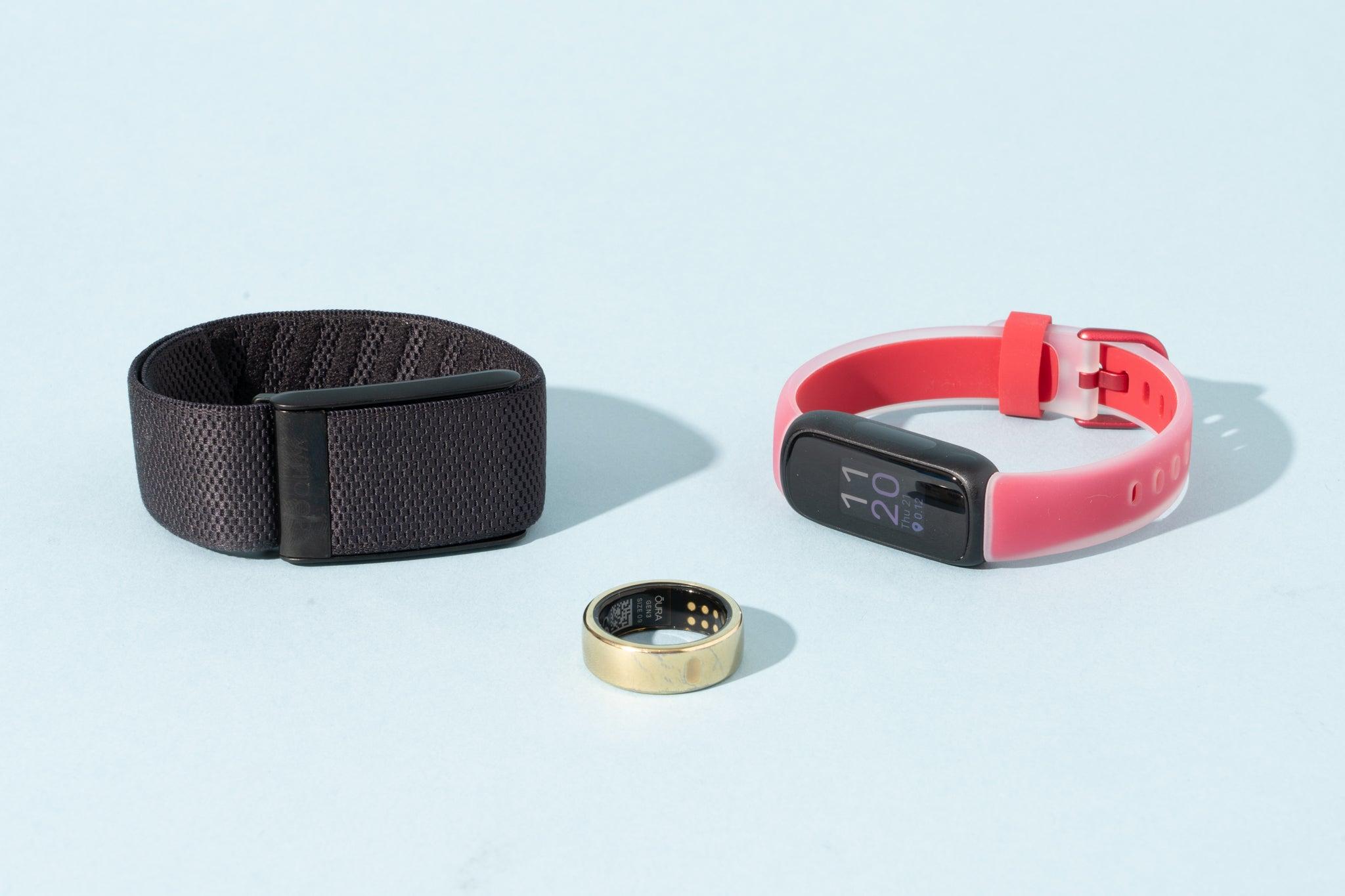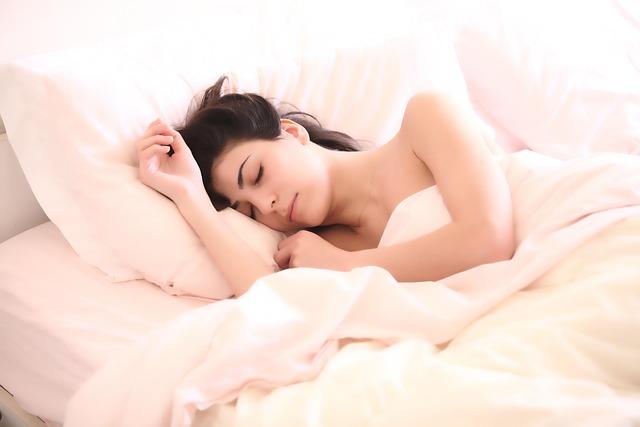In an era where wellness reigns supreme and data is king,sleep tracking has emerged as a cornerstone of personal health management. Enter the contenders in this battle of the bands: the Oura Ring, the Whoop Strap, and the Fitbit. Each device promises to unlock the secrets of your nightly rest, offering insights that can transform how you approach your sleep and overall well-being. But with so many options on the market, how do these high-tech wearables stack up against each other? In this showdown, we’ll delve into the unique features, benefits, and limitations of each device, helping you navigate the maze of metrics and measurable sleep quality. Whether you’re a fitness fanatic, a sleep enthusiast, or just curious about the latest in health technology, join us as we illuminate the path to better sleep with a closer look at these three formidable contenders.
assessing Sleep Accuracy: How Oura Ring, Whoop Strap, and Fitbit Measure Restorative Slumber
When it comes to quantifying restorative slumber, each sleep tracker boasts its own unique approach.The Oura Ring utilizes advanced sensors to gauge heart rate variability (HRV), body temperature fluctuations, and sleep stages, providing users with insights into their overall recovery. Its sleek design enhances user convenience, while the accompanying app offers a visually appealing overview of sleep patterns through engaging visuals. in contrast, the whoop strap focuses on respiratory rate, strain, and recovery metrics, delivering a thorough assessment that allows athletes to optimize their training schedules based on sleep quality. The strap’s subscription model also encourages an ongoing analysis of your sleep data, promoting habit changes that lead to improved recovery rates.
On the other hand, Fitbit appeals to a wider audience with its intuitive interface and accessibility. Through a combination of heart rate monitoring and motion tracking, Fitbit devices effectively analyze the various stages of sleep, from light to REM. The platform’s social aspects, such as challenges and community interaction, make it a fun choice for users who enjoy motivation from peers.To compare their sleep tracking features, here’s a brief overview:
| Feature | Oura Ring | Whoop Strap | Fitbit |
|---|---|---|---|
| Sleep Stages | Yes | Yes | Yes |
| Heart Rate Monitoring | Yes | yes | Yes |
| body Temperature Tracking | Yes | No | No |
| Subscription Required | No | Yes | No |

Features and Functionality: A deep Dive into Sleep Insights Offered by Each Device
When diving into the world of sleep tracking, Oura Ring, Whoop Strap, and Fitbit each offer unique insights that cater to different user preferences. Oura Ring shines with its comprehensive data collection, providing users with insights on sleep stages, heart rate variability, and restfulness. Its intuitive app interface breaks down the metrics, offering personalized recommendations based on your unique sleeping patterns. the premium battery life lasting up to a week means users can wear it all night without frequent charging, ensuring you never miss a night’s data for analysis.
On the other hand, Whoop Strap focuses intensely on recovery and strain, delivering insights that transcend mere sleep tracking. Users benefit from its sleep performance score which evaluates how well their sleep contributes to daily readiness. the subscription service provides ongoing access to custom insights, emphasizing coaching based on recovery data. Fitbit combines both sleep monitoring and lifestyle tracking features, offering Sleep Score metrics that assess quality and duration, along with real-time heart rate monitoring. Its social features foster community competitiveness, motivating users to improve sleep habits while also engaging in a healthy lifestyle.

User Experience and Comfort: Wearing Sleep Trackers for optimal Rest
wearing a sleep tracker can significantly influence not only your sleep quality but also your overall comfort throughout the night. Each device brings its own unique design and approach, intertwining functionality with wearability. When considering the Oura Ring, users appreciate its minimalist elegance, allowing it to be worn comfortably without feeling cumbersome. The battery life of up to a week means you won’t have to worry about nightly charging interruptions. in contrast, the Whoop Strap is designed for fitness enthusiasts, offering a snug fit alongside its durable materials. Its ability to monitor heart rate variability aids in identifying optimal recovery times, but some may find its bulkiness challenging to adjust to during sleep.
The Fitbit, with its variety of styles, caters to a broader audience, incorporating customizable bands that enhance both aesthetics and comfort. Its shining display and easy-to-navigate interface provide instant access to metrics, while the gentle vibration for notifications ensures you won’t miss crucial updates without disturbing your slumber. Here’s a speedy comparison of the comfort features of these popular sleep trackers:
| Device | Comfort Features | Battery Life |
|---|---|---|
| Oura Ring | Minimalist Design | 7 Days |
| Whoop Strap | snug Fit, Durable | 5 Days |
| Fitbit | Customizable Bands | 5-7 days |

Choosing the Right Fit: Recommendations Based on Your Sleep Needs and Lifestyle
when considering the best sleep tracker for your individual needs, it’s essential to weigh your lifestyle preferences and sleep habits. If you seek in-depth sleep analysis combined with a sleek design, the Oura Ring might be your ideal match. Its compact nature allows you to wear it discreetly, making it a favorite among those who prioritize both style and functionality. The Oura Ring excels in tracking readiness,sleep stages,and recovery metrics,catering to individuals who are invested in optimizing their daily performance based on their sleep quality.
On the other hand, if you’re more active and prefer a device that doubles as a fitness tracker, the whoop strap is tailored for you. It emphasizes continuous heart rate monitoring, recovery insights, and strain tracking, making it perfect for athletes or fitness enthusiasts who want to understand how their sleep impacts their training. Meanwhile, the Fitbit offers a balanced blend of sleep tracking with additional features such as step counting and heart rate monitoring, appealing to those who appreciate a multifunctional wearable.Consider your daily activities and sleep patterns carefully to make a choice that best supports your lifestyle.
Concluding Remarks
As we draw the curtain on our deep dive into the world of sleep tracking, the Oura Ring, Whoop Strap, and Fitbit stand as formidable contenders in the quest for better rest.Each device brings its unique blend of technology, features, and insights, catering to diverse preferences and sleep needs. whether you prioritize the sleek elegance of the Oura Ring,the performance-driven metrics of the Whoop Strap,or the comprehensive health tracking of the Fitbit,the choice ultimately boils down to your personal lifestyle and wellness goals.
In a world where sleep is increasingly recognized as a vital pillar of overall health, investing in the right sleep tracker can be a game changer. By understanding the strengths and weaknesses of each device, you empower yourself to make an informed decision, turning sleep into a tool for rejuvenation rather than a nightly struggle.
The journey to restful slumber doesn’t end here; rather, it’s a call to explore, experiment, and embrace technology’s role in improving our nightly refuge. Whichever device you choose,may it illuminate the path to restorative nights and energized days ahead. Sweet dreams!

